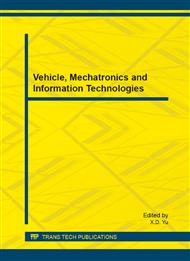[1]
M. Kodialam and T. V. Lakshman, Detecting Network Intrusions via Sampling: A Game Theoretic Approach, Bell Laboratories Lucent Technologies, April (2003).
DOI: 10.1109/infcom.2003.1209210
Google Scholar
[2]
M. Mehrandish, H. Otrok, M. Debbabi, C. Assi and P. Bhattacharya, A Game Theoretic Approach to Detect Network Intrusions: The Cooperative Intruders Scenario, Proc. 49th annual of IEEE GLOBECOM, San Francisco, IEEE press, (2006).
DOI: 10.1109/glocom.2006.293
Google Scholar
[3]
M. Mehrandish, C. Assi and M. Debbabi, A Game Theoretic Model to Handle Network Intrusions over Multiple Packets, In Proc. of IEEE International Conference on Communications (ICC), Turkey, June (2006).
DOI: 10.1109/icc.2006.255095
Google Scholar
[4]
H. Otrok, N. Mohammed, L. Wang, M. Debbabi and P. Bhattacharya, A game-theoretic intrusion detection model for mobile ad-hoc networks, Journal of Computer Communications, 31(4): 708–721, (2008).
DOI: 10.1016/j.comcom.2007.10.024
Google Scholar
[5]
Y. Liu, C. Comaniciu and H. Man, A Bayesian game approach for intrusion detection in wireless ad hoc networks, ACM International Conference Proceeding Series, Vol. 199, (2006).
DOI: 10.1145/1190195.1190198
Google Scholar
[6]
N. Mohammed, H. Otrok, L. Wang, M. Debbabi and P. Bhattacharya, Mechanism Design-Based Secure Leader Election Model for Intrusion Detection in MANET, IEEE Transactions on Dependable and Secure Computing, vol. 99, no. 1, (2008).
DOI: 10.1109/tdsc.2009.22
Google Scholar
[7]
S. Shen, Y. Li, H. Xu, Q. Cao, Signaling game based strategy of intrusion detection in wireless sensor networks, Computers & Mathematics with Applications 62: 2404–2416, (2011).
DOI: 10.1016/j.camwa.2011.07.027
Google Scholar
[8]
D. Luo, Study on the Analytic Methods for Grey Decision-Making, Nanjing University of Aeronautics and Astronautics, N941, 120100, 1028709 04-0001, October (2004).
Google Scholar


